When it comes to performance, I’m something of a jack of all trades. I’ve studied music, theatre, and dance, and even though writing took the front seat on the bus of my vocational life, I can still shake off my mental cobwebs enough to play each of the four instruments I once studied, perform a monologue from a Shakespeare play, and even do the Charleston.
One area I’ve never quite managed to walk away from has been vocal performance – unsurprising, as my mother is a choral professor – and in my free time I’ve been known to do spoken voice work, usually for fun with only the vaguest of aspirations towards profit. So, when a friend of mine sent me a link to Bioware’s Explorers Wanted contest, I was, understandably, all over that.
 Bioware’s Explorers Wanted contest offers fans of the Mass Effect series an unmissable opportunity: the chance to voice a character in their upcoming successor to the original game trilogy, Andromeda. Now, in addition to being an amateur voice actor, I am also a huge fan of the Mass Effect series – I’ve logged over five hundred hours across multiple platforms in the Mass Effect games, I’ve written fanfiction, and I even have a Mass Effect tattoo – and all of this came together to create the circumstances surrounding last Monday night.
Bioware’s Explorers Wanted contest offers fans of the Mass Effect series an unmissable opportunity: the chance to voice a character in their upcoming successor to the original game trilogy, Andromeda. Now, in addition to being an amateur voice actor, I am also a huge fan of the Mass Effect series – I’ve logged over five hundred hours across multiple platforms in the Mass Effect games, I’ve written fanfiction, and I even have a Mass Effect tattoo – and all of this came together to create the circumstances surrounding last Monday night.
I got set up with my recording equipment (my old laptop and analog headset microphone), pulled up the scripts provided by the contest organizers, and did my first take, trying to do what the website instructed and speak in my normal voice. No funny gimmicks, singing, or caricatures, just standard human speech, and as I stopped the recording, I felt like things had gone well.
When I went to listen to the playback, however, I was suddenly smacked in the face with a massive helping of dysphoria.
Because when I listened to my recorded voice through the headset, my brain started screaming at me:
You sound like a girl.
__
Some background, for the sake of clarity here: I’m a transgender man. I came out at the beginning of 2015, and have been slowly navigating the treacherous waters of what it means to be a man, in every sense of the word. While I’m strongly invested in breaking down the gender binary, especially in regards to the toxicity it injects into our society, part of my own journey has been coming to terms with what it means for me, someone assigned a certain gender at birth, to realize that my designated gender doesn’t match up with who I really am. It’s been hard, sometimes painfully so, but I’ve also been very lucky in that I have a strong network of supportive and accepting friends and family who have been with me with every step I’ve taken into my transition.
One of my biggest challenges since I’ve come out has been a hyperawareness of my own physicality and the need I feel to pass — to appear in such a way that others will see me as man — when I’m out in public. Even with my desire to destroy gender essentialism, I cannot even begin to describe the feeling I have when a stranger refers to me as ‘sir’.
Like many transgender individuals, I experience gender dysphoria – a kind of psychological distress caused by my not actually being the gender I was assigned at birth – and a few months after coming out I discovered that one of my strongest dysphoria triggers was something I hadn’t expected.
It was my voice.
I discovered this when I was at an academic conference in 2015, the Pop Culture Association/American Culture Association conference in New Orleans. I was there presenting on the research I’d conducted for my Master’s Thesis, and as I skimmed the program I saw that one of the events was a film screening and question and answer session with Martin Sheen, known for his role as President Bartlet on The West Wing, and, more significantly, his voice work as The Illusive Man in Mass Effect 2 and 3. Being a fan of both his work on live action TV and in voice acting, I attended, eager to use the opportunity to ask a question about his experience working on one of my favourite video games.
I got to ask a question, after waiting patiently for the chance to get to the microphone, and I nervously managed to stammer out a question asking Mister Sheen about playing The Illusive Man.
And he smiled, chuckled a little, and looked around the auditorium full of quite possibly a thousand people and said:
“Do you guys know what she’s talking about?”
I’m not criticizing Mister Sheen for his gender characterization of me here, just to make that abundantly clear. It was a large auditorium, I was at least halfway back in the sea of people, and it’s safe to say the only thing he had to go on as far as pronouns went was my voice.
Still, it hurt like hell.
I waited until the end of the Q&A portion of the event, slipped out of the auditorium, and spent a good hour or so in my hotel room crying over something I hadn’t expected to hit me so hard. My voice felt like a traitor, cutting through my carefully selected masculine-coded clothes and hairstyle and exposing me as an imposter, an interloper, someone desperately seeking their identity but being stopped at every turn by something they couldn’t control.
No matter what clothes I wore, how I carried myself, how I interacted with the world at large, part of my brain still screamed over and over that I sounded like a girl.
I sounded like a girl, and no matter how I dressed myself, how well I knew myself, and how many legal and social hoops I’d jump through, I’d still sound like a girl. That was how that felt, and that was the feeling I fell back into as I listened to the recording of my voice for my Explorers Wanted contest entry.
__
All I could think as I listened to the playback was that I didn’t want the judges to listen to my entry and code me as a girl. All I could think was that was what was going to happen if I submitted an entry. I felt ridiculous for it, like I shouldn’t care what strangers think or feel about me and my personal gender identity. Yet there it was, in the forefront of my mind, the same war I waged when a stranger on the phone called me ‘ma’am’.
Voice is important. The way we sound, our tone and cadence, can be the difference between paying a compliment or delivering an insult. In composition theory, we talk a lot about the importance of establishing our own voice in our writing, bringing out our true selves and establishing our identity. How we sound when we speak, be it a written or a verbal form of speech, impacts how we are received by the world around us.
When I speak to people, the tone and pitch of my voice frequently results in me getting coded as female. Meeting someone in person is less of a big deal, I have physical gender markers on my side, but a method of communication that revolves purely around voice leads to frequent misgendering. It’s frustrating because voice shouldn’t be gendered, just like clothes and jobs and mannerisms and actions shouldn’t be either, but it matters to me that people recognize my identity when I speak. Simply put, it matters to me that I’m perceived as a man because I am one. End of story.
Voice carries a lot of weight in video games. In a virtual world, the way a character sounds and speaks is the player’s window into their identity. Often, depending on the budget of the game and the style of the graphics, a character’s voice is the most realistic and human thing about them. As a result, casting performers for games carries a lot of weight for creators and fans alike. We talk about representation in games a lot in terms of how characters are physically rendered, but the way characters speak has just as much cultural and social baggage as their appearance. When we hear a character speak and they don’t sound ‘right’ to us, it can disrupt the entire immersive experience.
Bioware has made amazing headways in representation across multiple spectrums, featuring transgender characters like Krem in their Dragon Age universe. However, that representation thus far has only extended to the look of the characters on the screen. I for one would love to hear a transgender character voiced by a transgender actor for a subset of the reason I want to see more trans characters in general: it normalizes the presence of transgender people in video game worlds and contexts. If a transgender character is voiced by a transgender actor, it shows me that there are others out there who sound like me, that the things that cause me dysphoria don’t make me any less masculine.
Representation matters, and not everyone seeking it is in a position where they can seek it out and fight for it. I have the support of family, friends, and colleagues, and while I struggle with trying to find my voice, both literally and figuratively, I’ve got a lot of people in my corner.
I submitted my entry to the contest last week. It’s up on my soundcloud page for the contest judges, and anyone else around, to hear. My chances are as good as anyone else’s, of course, but I still feel like I had to overcome a lot of my own inner demons to post this audio clip.
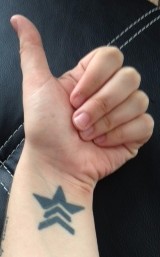
I hope that regardless of the Bioware judges’ decisions on who wins the contest, my being open and sharing this experience will help people somehow. There are other trans people who play games out there, others who love to perform and voice act, and others like me who worry that their voice, their real voice, isn’t being heard. Who knows, maybe they’ll hear me and see that you can still be a man no matter how ‘feminine’ my voice sounds.
And if I win the contest? Well, we are talking about Bioware here. They’ve had trans characters in their games before. If I can contribute even a little to moving that kind of representation forward? I’ll fight all the dysphoria life has to throw at me.

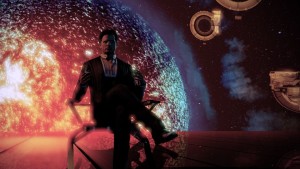
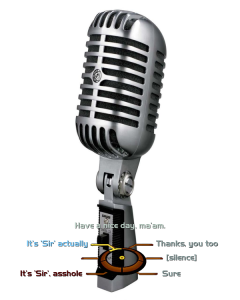
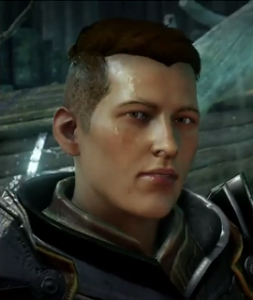

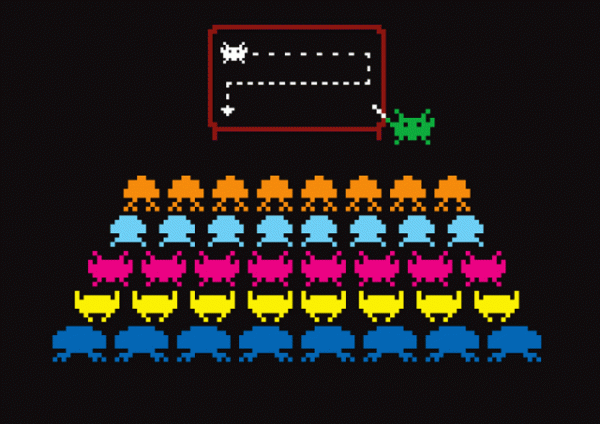
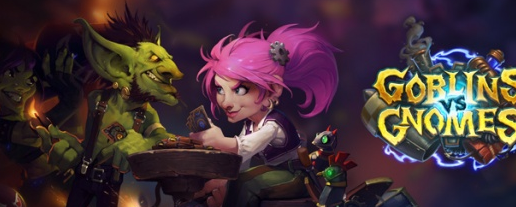
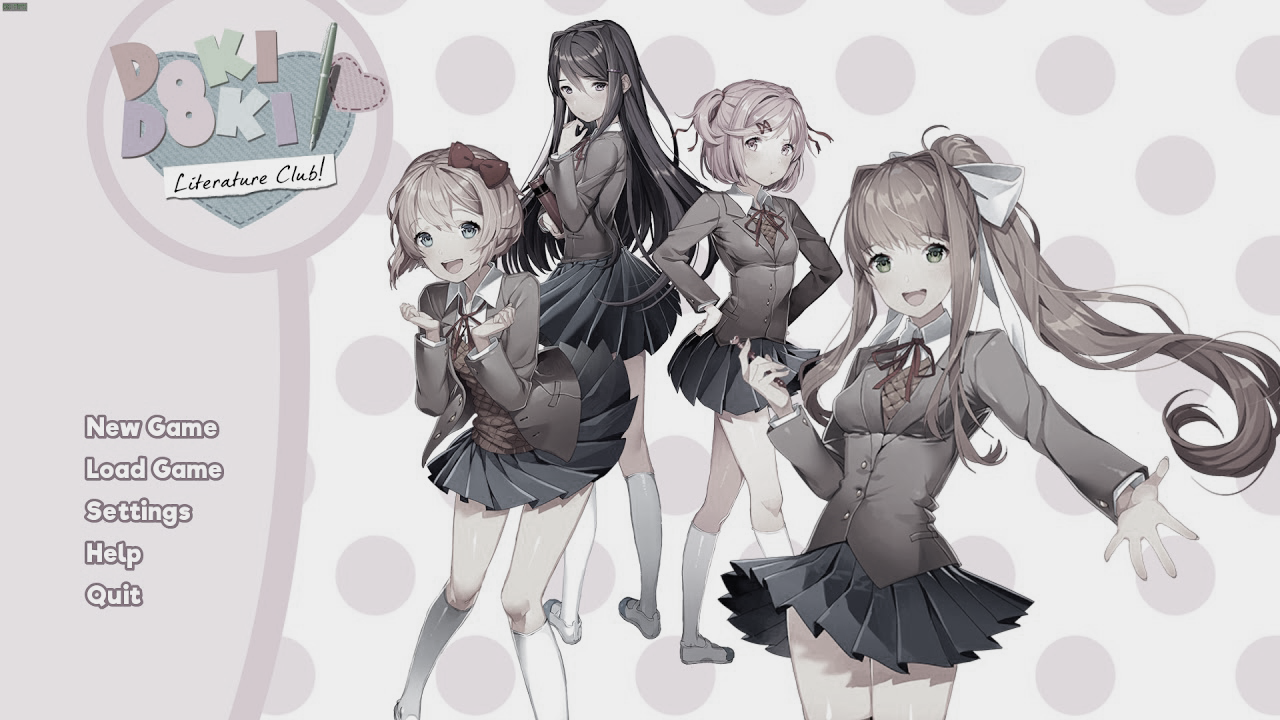
One thought on “Ten-Four Commander: Voice, Gender, and Video Games”
Well, Mr Lee I really hope that you are successful with your sound clip. Know that there are people out there that will try their best to support you. I wish you the best.